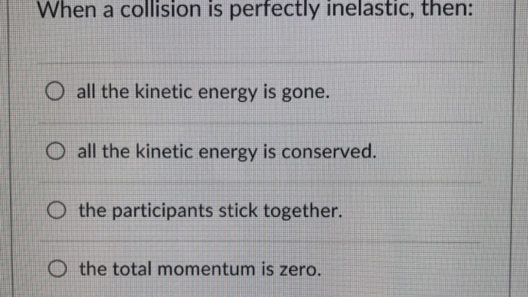In the quest for sustainable energy solutions, solar energy emerges as a transformative powerhouse, illuminating the path toward energy conservation and environmental sustainability. As we delve into the mechanics of solar energy, it becomes evident that harnessing the sun’s abundant rays not only mitigates dependence on fossil fuels but also fosters an intricate balance within our ecosystems. This exploration will elucidate how solar energy facilitates energy conservation, offering a profound glimpse into the potential of sunlight as a superpower.
Firstly, let’s address a common observation: sunlight is a resource that is perpetually available, yet underutilized in many parts of the world. This underutilization often stems from a reliance on traditional fossil fuels, which present significant environmental challenges, including greenhouse gas emissions leading to climate change. The allure of solar energy lies not only in its sustainability but also in its capacity to deliver extensive benefits across myriad sectors. By transitioning to solar energy systems, we can substantially curtail energy consumption from non-renewable sources.
Solar energy systems harness the sun’s rays using photovoltaic (PV) cells or concentrated solar power (CSP) technologies. These systems convert solar radiation into usable electrical energy, making it feasible for individuals, businesses, and municipalities to generate their own power. This localized production of energy diminishes transmission losses commonly associated with traditional power grids, thereby enhancing overall energy efficiency.
Moreover, one cannot overlook the economic advantages linked with solar energy adoption. As installation costs have plummeted due to technological advancements and economies of scale, solar panels have become increasingly accessible to a broader audience. This democratization of energy production allows households to produce excess energy, which can be fed back into the grid. Such arrangements not only contribute to energy conservation but also generate financial incentives for users, paving the way for a self-sustaining energy economy.
In addition to its economic allure, solar energy plays a pivotal role in conservation efforts by reducing the environmental footprint associated with energy generation. Conventional energy sources, such as coal, oil, and natural gas, are notoriously polluting and contribute heavily to environmental degradation. Each phase of their extraction, transportation, and combustion releases harmful pollutants into our air and waterways. By shifting our reliance toward solar energy, we markedly decrease the volume of emissions, thereby safeguarding the integrity of our planet’s ecosystems.
The ecological advantages extend beyond merely reducing emissions. Solar energy systems require significantly less water than conventional fossil fuel extraction processes. Water scarcity has become an escalating concern in numerous regions worldwide. Solar technology fosters water conservation, as it alleviates the immense demand for freshwater associated with traditional energy sources which require substantial water for cooling and processing. In arid regions, this reduction in water consumption can be pivotal for supporting local communities and protecting biodiversity.
Another compelling aspect of solar energy involves its ability to stimulate innovation within the renewable energy landscape. The proliferation of solar technologies encourages research and development of new applications that enhance energy efficiency. For instance, advancements in battery storage technologies seamlessly integrate with solar power generation, allowing for the storage of surplus energy generated during sunny periods for later use. This capability not only optimizes energy utilization but also provides a robust solution for energy security in times of increased demand or power outages.
The relationship between solar energy and conservation transcends technological advancements; it also engenders a cultural shift towards sustainable practices. The adaptation of solar energy systems fosters a heightened awareness and mindfulness regarding energy consumption. Communities that embrace solar technology often become engaged in broader conservation efforts, promoting initiatives such as energy-efficient building practices, green landscaping, and sustainable transportation. This collective commitment reinforces the understanding that every action counts in the pursuit of ecological equilibrium.
As the focus on climate change intensifies, nations are increasingly recognizing the need for strategic shifts toward sustainable energy sources. Countries worldwide are formulating policies that promote solar energy adoption, aiming to reduce greenhouse gas emissions and fulfill international climate agreements. Governments are providing incentives for solar panel installations, often in the form of tax credits, rebates, and grants, which further catalyze the widespread acceptance of solar technologies.
Notably, the emergence of community solar projects exemplifies a collaborative approach to harnessing solar energy. These initiatives enable entire neighborhoods or regions to benefit from a shared solar power system, thereby broadening access to renewable energy sources for those unable to install individual solar panels. Such inclusivity bolsters energy conservation efforts by amplifying the cumulative impact of local solar projects while engendering a sense of community and shared purpose.
Nevertheless, the transition toward a solar-powered future is not without challenges. Large-scale implementations may face obstacles such as regulatory hurdles, market volatility, and spatial constraints. However, with persistent innovation and commitment to sustainable policies, the path toward overcoming these barriers is becoming clearer. Furthermore, public education and advocacy play a crucial role in galvanizing community support and driving policy changes that favor solar energy.
In conclusion, solar energy represents a quintessential superpower in the ongoing battle against climate change. By alleviating our reliance on fossil fuels, reducing emissions, conserving resources, and fostering sustainable practices, solar energy catalyzes a comprehensive transformation across multiple dimensions of our societies. Embracing the sun’s abundant potential not only propels us toward energy conservation but also illustrates a collective commitment to preserving our planet for future generations. As we harness the power of sunshine, we weave together the fabric of an energy-efficient and sustainable world—one radiant ray at a time.








